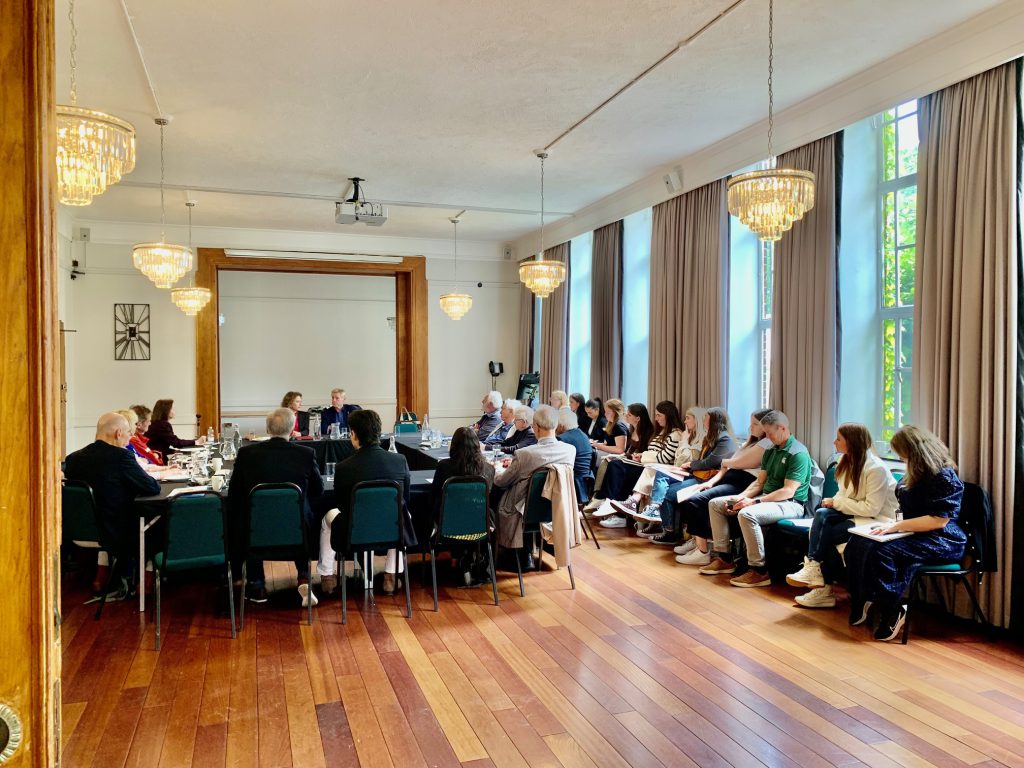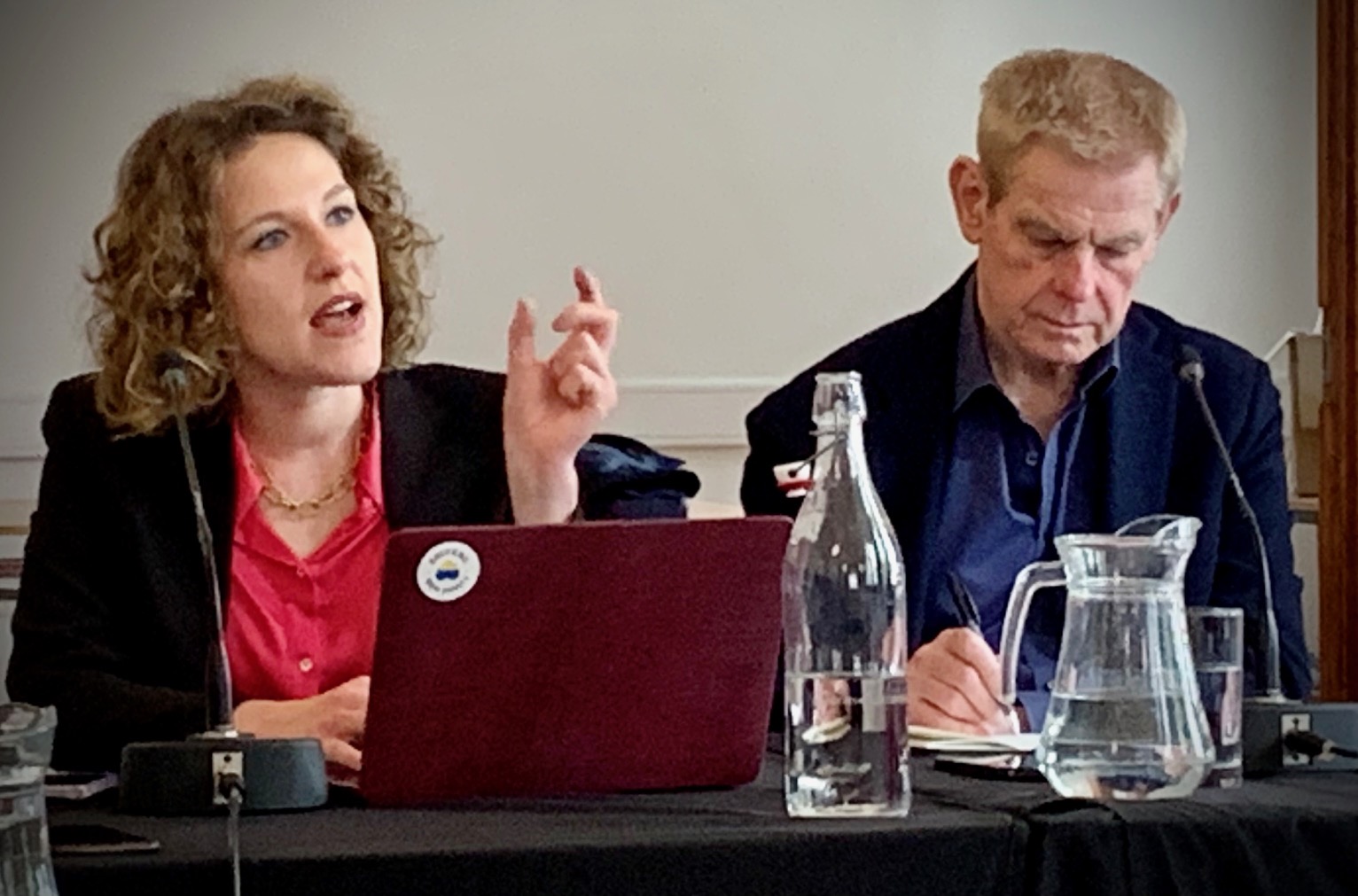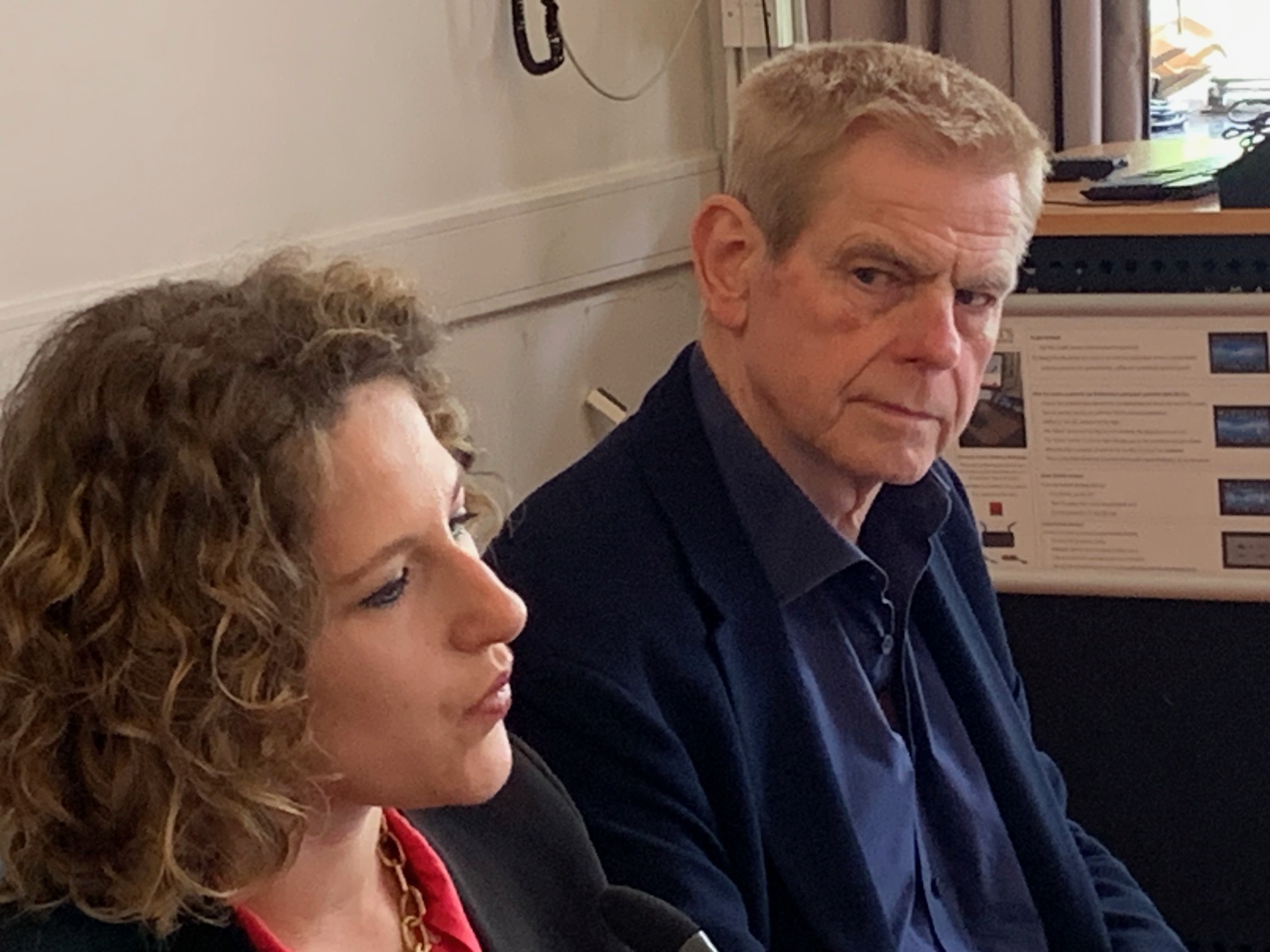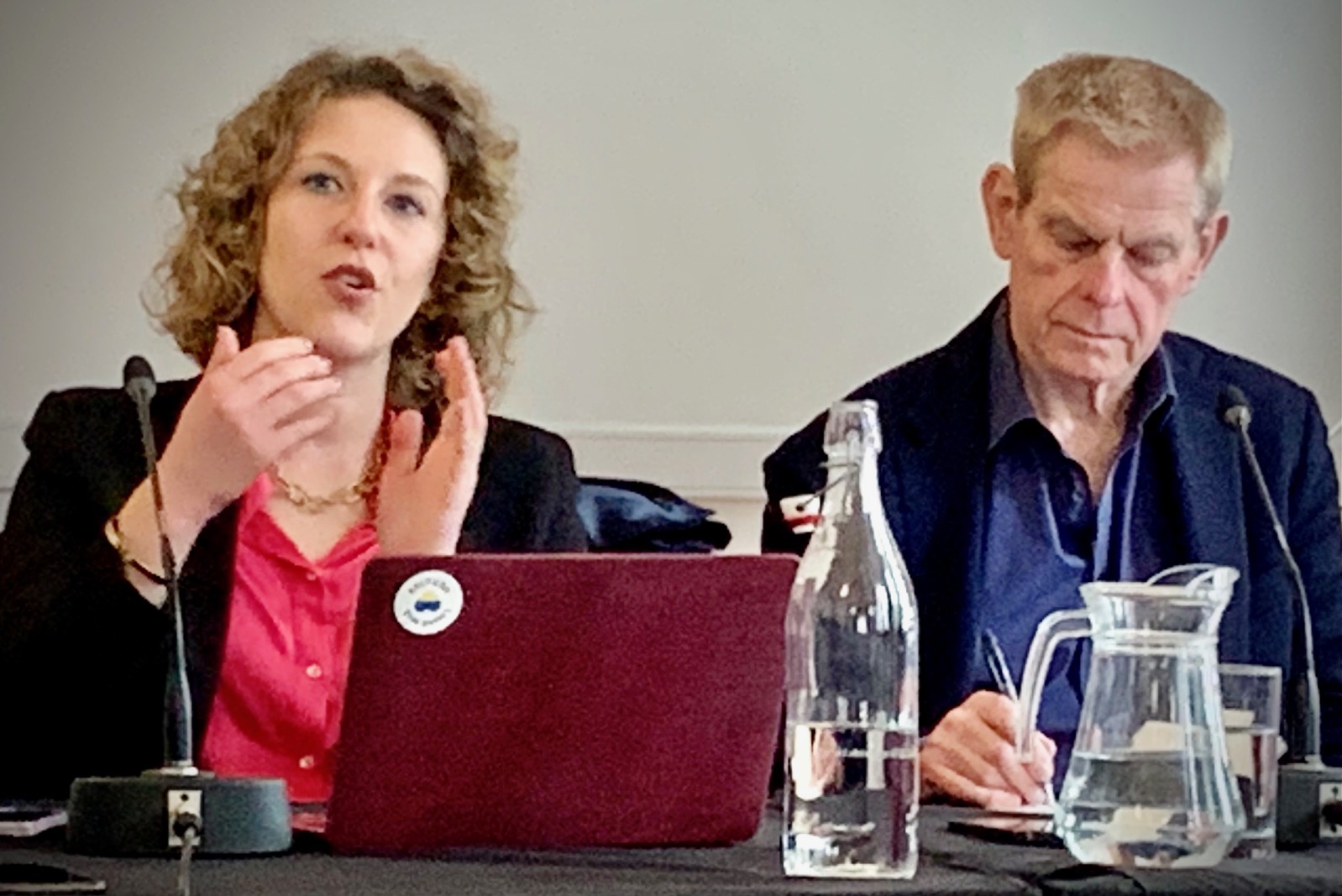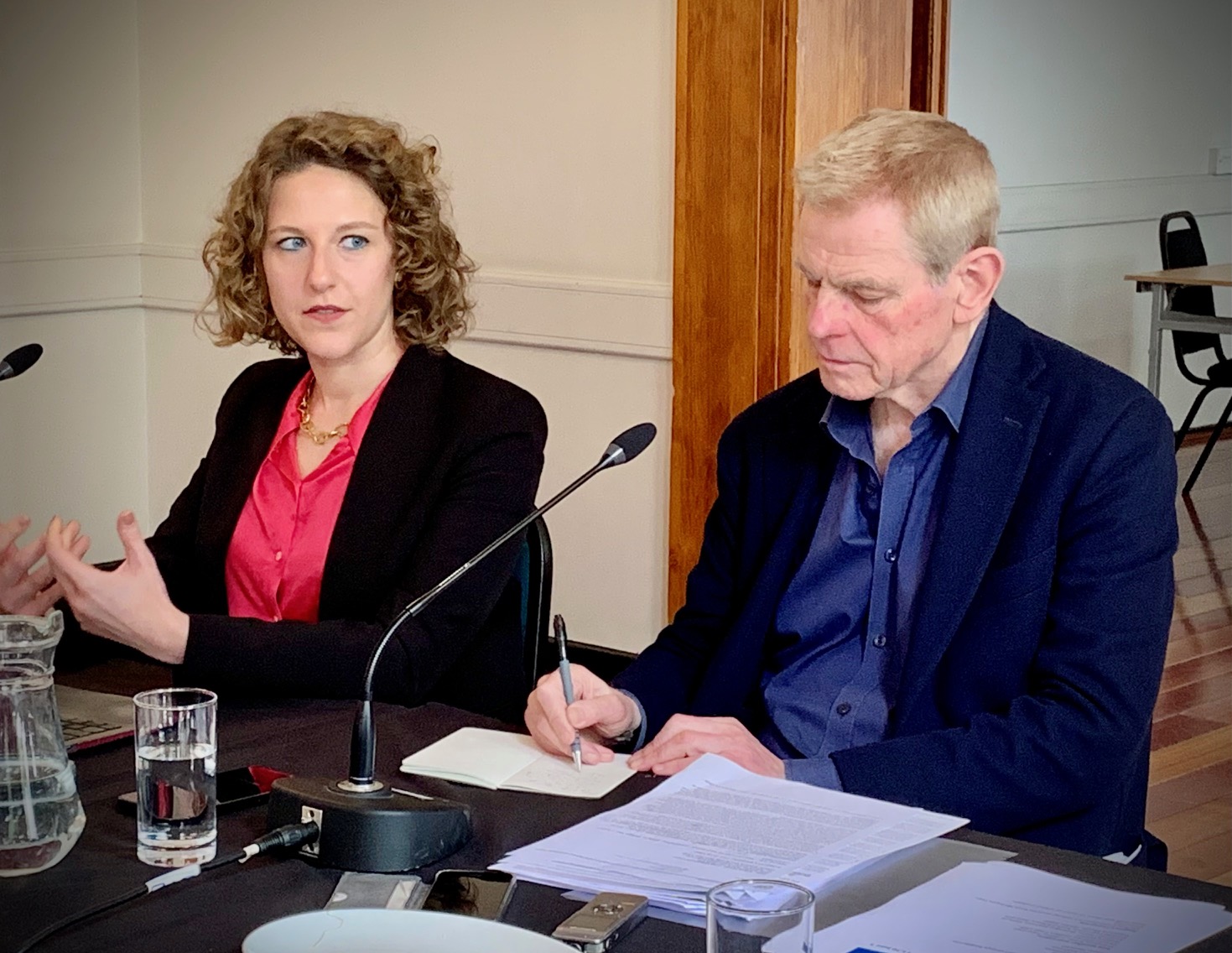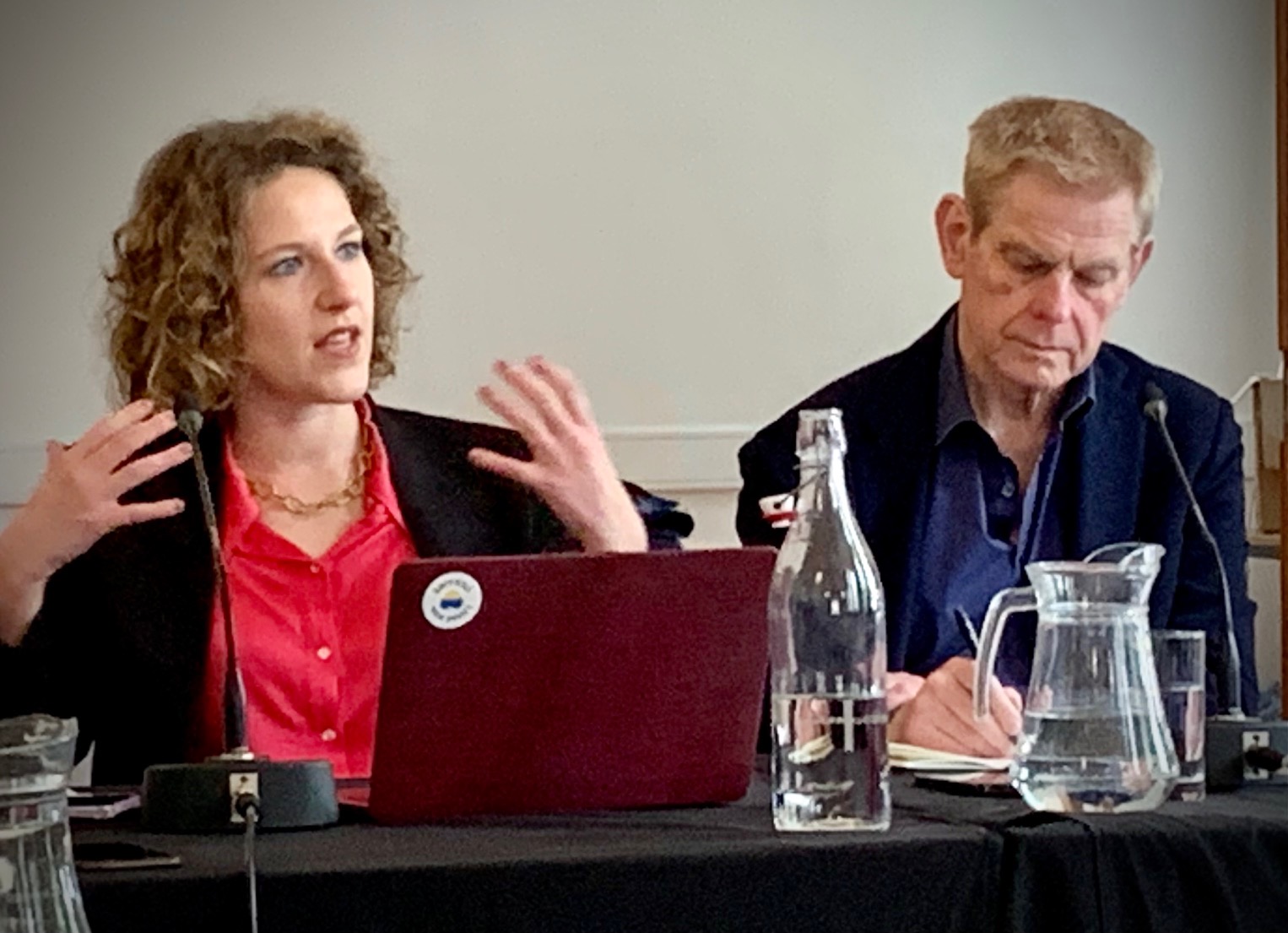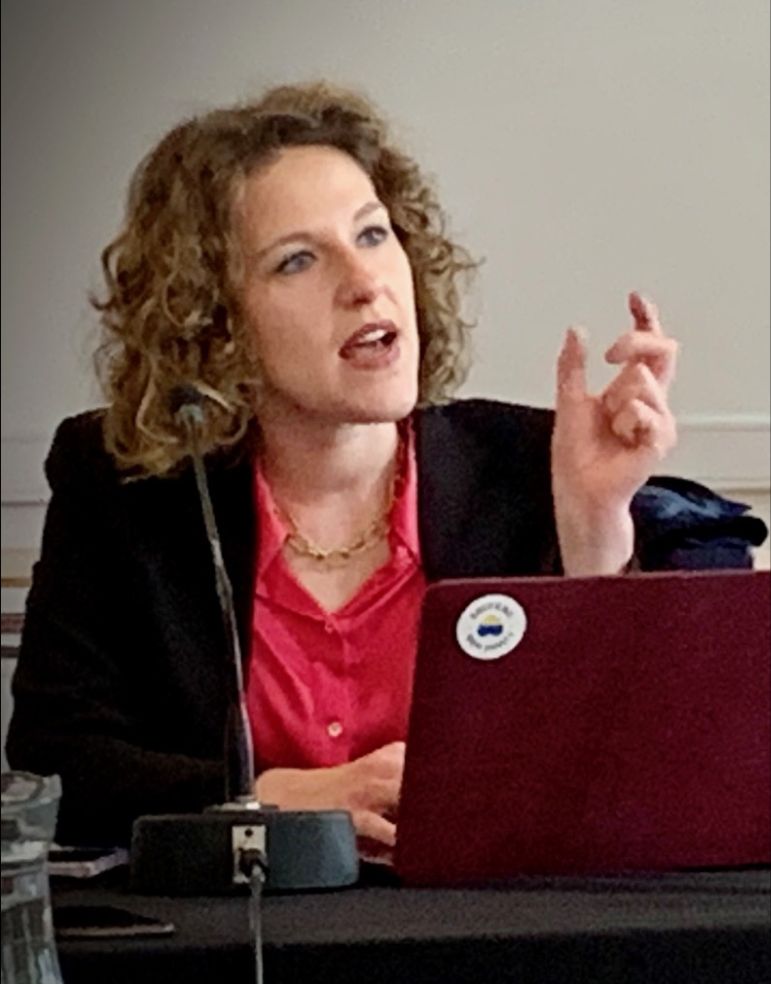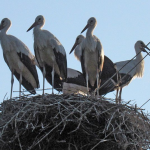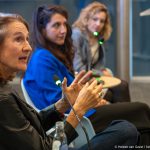William Horsley reports on the AEJ’s meeting on 5 June 2023 with researcher and political scientist Jaroslava Barbieri
Jaroslava Barbieri is an Italo-Ukrainian political scientist whose research focuses on Ukraine and the former Soviet Union https://bham.academia.edu/JaroslavaBarbieri .
She set out at this meeting to demonstrate how the origins of Russia’s military invasion of Ukraine and the Kremlin’s violent denial of Ukraine’s right to exist lie not so much in very recent events as in long-standing and deeply distorted narratives inspired by the imperial ambitions of czarist Russia. She argues that the West’s blind spot over Ukraine needs to be more fully explored and corrected to bring lasting peace to Ukraine and the wider region and avoid repeating the mistakes of the past.
Those long-term biases arising from Russia’s false narratives have deeply influenced people in the West down the years, she says; and that delayed the outside world’s understanding of Ukraine’s extraordinary determination to fight for its legitimate independence today. She recalled the words of Ukrainian soldiers in interviews right after the full-scale Russian invasion in February last year: they spoke of “a war which has been going on for over 350 years”.
Barbieri’s remarks emphasised Ukraine’s success in developing itself into a functioning democracy and the resilience of Ukrainian society in the face of Russian aggression. But she acknowledged that the West’s strong and united support could not be guaranteed in the long term, and there was as yet no consensus about what a Ukrainian victory would look like. So Ukraine’s military and political leaders knew that they had in effect “one shot” at regaining all of Ukraine’s territory and driving the Russian army out. The outcome of this year’s battles on the ground, together with various international and domestic pressures on the Russian government would be crucial.
Earlier this year a UN Commission of Inquiry published its findings that Russia had committed many war crimes and other violations of international law in Ukraine https://www.ohchr.org/en/press-releases/2023/03/war-crimes-indiscriminate-attacks-infrastructure-systematic-and-widespread , and the International Criminal Court issued arrest warrants for President Putin and another senior Russian official for the unlawful deportation of children from occupied areas of Ukraine to Russia https://www.icc-cpi.int/news/situation-ukraine-icc-judges-issue-arrest-warrants-against-vladimir-vladimirovich-putin-and .
Within weeks of Russia’s full-scale invasion on 24 February last year, it had already been expelled from the Council of Europe and the UN General Assembly voted to suspend it from the Human Rights Council https://news.un.org/en/story/2022/04/1115782
But Jaroslava Barbieri’s purpose was not to discuss Russia’s “strategic blunders”. It was to ask: How did the West get Russia so badly wrong and fail to see the invasion coming?
History as active battle-ground
In 1991 some 90 percent of Ukrainians voted in a referendum for independence, and in that year the Soviet Union was dissolved and Ukraine’s sovereignty was internationally recognised. In his early years or years as Russia’s president, Putin did not question Ukraine’s independent status. Instead, Moscow habitually warned against Ukraine joining NATO or the EU and asserted its right to maintain a sphere of privileged influence in the former Soviet space.
Jaroslava said a turning-point came in 2013, during Putin’s third presidential term. Putin ordered the drafting of a new generation of history textbooks for Russian schools, which portrayed the medieval state of Kievan Rus, centred around Kyiv, as a proto-Russian state which combined three branches of “one Russian people”. The aim, she said, was to conceal from Russians that Ukrainian and Belarusian nations existed at that time which were separate from Russia.
Also crucial to Putin’s revisionist narrative was the emphasis in Russia’s version of history on the so-called “accession” of Ukraine to Russia at the end of the 17th century.
In 2021 Putin published a well-publicised essay on “the historical unity of the Russian and Ukrainian peoples” http://www.en.kremlin.ru/events/president/news/66181 ; yet the evident nationalism behind that manipulation of history was for too long “neglected” in western circles, Jaroslava said. She explained that for hundreds of years after the fall of Kievan Rus in the 14th century, most of Ukraine was dominated by other imperial powers including Poland and the Lithuanian-Polish Commonwealth. Throughout this period, Ukraine’s people and culture were heavily exposed to western influences, while areas of Ukraine bordering the Black Sea to the south and the east came under the multi-ethnic Ottoman empire.
So in her words Ukraine became “a historic crossroads and melting-pot of different empires”; and that experience was formative in Ukraine’s evolution into a multi-cultural society which today has surprised the world with its commitment to modern democratic statehood. But, she argued, an important gap in understanding arose because western opinion-formers generally viewed the affairs of Ukraine and the wider region through “Moscow’s lens”, and that made it easier for people in the west to buy into the Russian narratives. The core of Jaroslava’s argument is that those perceptions must now be corrected, with “more soul-searching” among those who had misread the realities of Russian intentions and what Ukraine has now become.
The Encyclopedia Britannica’s entry https://www.britannica.com/place/Ukraine/History clarifies the ways in which the Ukrainian and Russian versions of history are sharply at odds, especially concerning the period which followed the decline of the Polish empire and the partition of Ukraine along the Dnipro river in the late 17th century; the Britannica states that while Russian historians have emphasized Ukraine’s acceptance of the tsar’s suzerainty, which subsequently legitimized Russian rule, Ukrainian historiography has stressed Moscow’s recognition of Ukraine’s autonomy … “virtually tantamount to independence”.
Instrumentalising the past: from Operation Barbarossa to Putin’s “special military operation”
The “Great Patriotic War” was also central to Putin’s propaganda narratives and its justification for attacking Ukraine.
In Putin-era textbooks, the war is portrayed as having started in 1941 with the Nazi invasion of Russia, not in 1939 with the Nazi–Soviet Pact and the Nazi invasion of Poland. In 2014 the old narrative about Russia being “surrounded by enemies” was again used to justify the war in the Donbas, and eventually Russia’s full-scale invasion as well.
Jaroslava recalled how the Orange Revolution of 2004 and the Euromaidan revolution of 2014 were markers of Ukrainians’ “quest for freedom” from Russia. The Yanukovich regime’s bloody attempt to crush the Maidan protests was another turning-point — one which, she said, led the Ukrainian nation to “revise its political identity”. Throughout that period Russian leaders and Kremlin insiders sought to influence and control Ukraine’s political course through Kremlin-friendly oligarchs and agents, as well as the pro-Russian Party of the Regions https://www.britannica.com/topic/Party-of-Regions . And Moscow went on broadcasting the message that Ukraine was “not a real nation” and must remain inseparable from Russia.
Ironically, that relentless “imperial narrative” was so pervasive inside Russia that its leaders miscalculated what Ukraine’s response to the invasion would be, calling it a special military operation and encouraging Russians to believe that the victory would be quick. They believed that Ukrainian people would “welcome the troops with flowers”.
Russia’s strategic bunder is now widely understood. But the speaker called for a rigorous review and correction by western decision-makers of their failure to understand and draw conclusions from the revanchist language used for many years by Moscow against Ukraine and its people – including the “trope” that Ukraine was led and peopled by Nazis and fascists. That persistent failure came about, according to Jaroslava, because Russia was the dominant interlocutor for western political and media figures, who remained largely ignorant about Ukraine and its history. The warnings about Russia’s intentions sounded by Poland, the Baltic states and Ukraine were often seen as “alarmist” and those who voiced them were called “hotheads”. Ukraine’s fight for freedom from Russia’s grip is really an anti-colonial one, Jaroslava insists; and it is important now for that to be acknowledged.
Myth-busting and learning the lesson
She pointed to some important ways in which this process of self-examination and “myth-busting” about Russia really matters for the future.
Firstly, she argued, we must not accept a peace on Russia’s terms, as that would replicate the mistakes of the past – a reference to the West’s weak responses after Russia’s 2008 war with Georgia and again in 2014 following Russia’s seizure of Crimea and its attempt to capture a large part of eastern Ukraine by force. She cited the recent rejection by US Secretary of State Antony Blinken of what he called a “Potemkin peace”, which would not be sustainable. If Russia were able to continue occupying Crimea, she added, it could again be used to launch future attacks.
Indeed, if any settlement were to be made with Russia which left it in control of any part of Ukraine’s territory it has seized, that would make all those responsible for the deal into “accomplices” of Russia’s multiple war crimes, including the use of rape as a weapon of war. Ukraine’s fertile land – a major source of food supplies for the world and potentially a “green hub” of solar power for Europe as a whole – had also been badly contaminated by Russian bombardments, including by polluting undersea explosions in the Black Sea. [The destruction of the Kakhovka dam on the Dnipro river occurred on 6 June, one day after the AEJ symposium].
Finally, it had become clear that Ukraine might actually win the war, and Jaroslava suggested that the consequences of that for Russia were incalculable. Putin’s strategic blunder in launching the invasion had stirred up new levels of tension among the constellation of ethnic minorities inside Russia, including Chechens who had fought their own bloody war against Russia for self-determination in the 1990s. Activists among those non-Russian minorities often spoke of being subjected to “ethnic cleansing” and of deliberate policies of exploitation by the imperial centre, yet they had been disproportionately called up to fight in Ukraine for the “Russian world”. Some Chechen and Dagestani fighters had chosen instead to take up arms on the Ukrainian side against Russia.
The war was also causing a new level of tensions and public spats among Russia’s political and military elites, which were vying openly for power and influence, while reports from behind the Russian frontlines in Ukraine had recounted numerous cases of violent clashes between Russian soldiers and Yevgeny Prigozhin’s Wagner group mercenaries.
Despite the stranglehold of state propaganda over Russia’s official media, public frustration and anger over the obvious failings of Russia’s military in the war were symbolised, Jaroslava said, by the febrile tone of comments made by individual Russians in an online survey conducted recently by Meduza, the independent website based in Latvia: one said simply: “The only thing worse than a war is losing one.”
https://meduza.io/en/feature/2023/06/03/the-only-thing-worse-than-war-is-losing-one
Russian society, Jaroslava believes, now exhibits deeply troubling dynamics. Startlingly, she concluded by saying that the invasion of Ukraine might end up “breaking the Russian state”, so we need to start preparing for that possibility right now.
Audio recording of Jaroslava Barbieri at the AEJ UK
Ukraine – Wikipedia
Kievan Rus – Wikipedia
Examinations of the Kremlin propaganda machine – TLS (Times Learning Suppplement)
Jaroslava Barbieri at the AEJ UK
